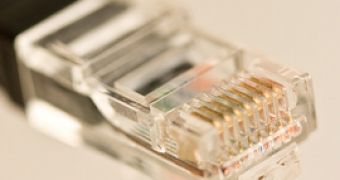There's been plenty of talk so far, but 'end is nigh,' it seems, for the last IPv4 addresses. A number of organizations who handle domain and address distribution and the general workings of the internet will get together for a joint announcement later today.
Internet Corporation for Assigned Names and Numbers (ICANN), along with the Number Resources Organization (NRO), the Internet Society and the Internet Architecture Board (IAB) are expected to talk about the IPv4 address depletion problem and possibly announce that the last batch of IP addresses have been assigned.
"The international media is actively covering the dwindling pool of Internet addresses using the original Internet protocol, called IPv4 (Internet Protocol version 4)," the Internet Society wrote.
"These news stories served to pique international interest and raise important questions about the future of the Internet’s addressing system. The answers to those questions are of interest to 2-billion Internet users," it continued.
"Against that backdrop, four international non-profit groups, which work to coordinate the world’s Internet addressing system and its technical standards, are planning to make a major announcement at a news conference on Thursday, February 3 in Miami, Florida," it announced.
The number of unassigned IPv4 addresses has been dwindling for years and, despite a solution - IPv6 - being in the works for years, adoption has been dismal.
IPv4 addresses are assigned at the highest level 16 million at a time, in "/8" blocks. There are only five of these blocks left at this point and they're about to be handed over to the five regional registries.
Of course, this means that, even if, technically, there won't be any more unassigned addresses, local ISPs will still be able to get batches of unused addresses for a while.
But even so, it is only a matter of time, a short one, before those run out as well. There are some assigned but unused batches that could be traded and there are temporary technical solutions to the problem, basically wide scale NATs, but the only permanent solution is switching over to IPv6.

 14 DAY TRIAL //
14 DAY TRIAL //